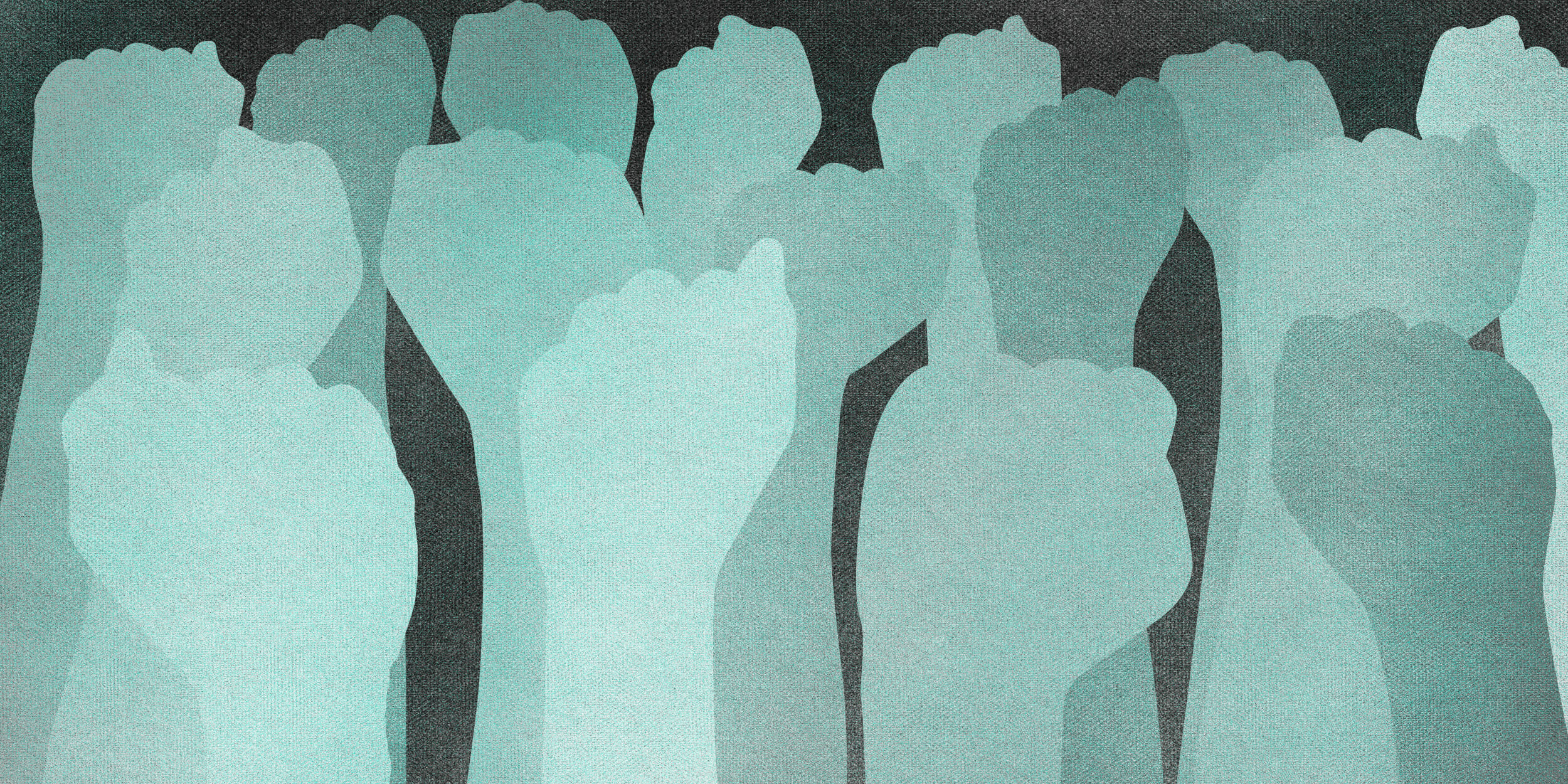During the 2016 presidential election run, as parties candidates were competing for their presidential nomination, now-President Donald Trump lashed out at former Democratic presidential candidate Sen. Bernie Sanders (I-Vt.) to cheering crowds.
“This socialist-slash-communist…” Trump said. “I call [Sanders] a socialist-slash-communist, because that's what he is. … He's going to tax you people at 90 percent; he's going to take everything!”
It was clever political hit to dress Sanders up as a Cold War-era bogeyman, but it displayed a crude—one might say calculated—misrepresentation of the ideology that the Vermont senator holds.
And it's one Trump is going back to as the 2020 election approaches.
At his State of the Union address, Trump declared that the U.S. would never become a socialist nation.
“Here, in the United States, we are alarmed by new calls to adopt socialism in our country,” the president said. “America was founded on liberty and independence—not government coercion, domination, and control. We are born free, and we will stay free … Tonight, we renew our resolve that America will never be a socialist country.”
Trump's statements come as Democrats who have declared for president, like Sen. Kamala Harris (D-Calif.) and Sen. Elizabeth Warren (D-Mass.), have kicked off their campaigns with leftist policy proposals.
Although Sanders is not currently running for president, he most likely will, and the self-identified “democratic socialist” has become a guiding light among progressives. And many on the left are now pushing ideas like universal healthcare, raised minimum wages, and taxes on the wealthiest Americans—ideas that have roots in socialism. As a large portion of the American electorate gravitates toward these ideas, let's take a look at what socialism means—and what it could mean for America.
What is socialism?
Socialism is a political ideology that advocates for an egalitarian redistribution of wealth and power in society through the redistribution of society’s means of production (or means of making money). Socialism, in the simplest of terms, involves making more of an effort to balance the scales between the rich and the poor.
Nowadays, the term refers to a wide swathe of the left-wing political thought. Some socialists believe that workers or communities should manage businesses as stakeholders, what is known as a cooperative, while others advocate for varying degrees of governmental ownership and administration.
Likewise, throughout history, socialists have disagreed over how this change should come about. Revolutionaries called for a sudden violent overthrow of capitalism, while reformists actively worked to evolve the model of government to a more socialist system.
READ MORE:
Where did socialism come from?
The ideology emerged in the mid-19th century as a reaction to the rise of early capitalism and the economic inequality it induced.
Capitalism, or liberalism, focuses on private property and profit. Perhaps the most prominent economic theorist to define modern capitalism, Adam Smith, famously laid out this philosophy in his book, The Wealth of Nations, published in 1776, which described how a free market could regulate itself through competition and with little government interference. This idea would revolutionize how society was structured in the centuries that followed. It began a transition from mercantilism—colonial-era state regulated trade through chartered trading companies—to commercial capitalism.
By the time the 19th century rolled around and industrial capitalism was in stride, working conditions were inhumane. Children were forced into the workplace, workers’ days were long and difficult. With few rights, workers had no safety provisions and minimal pay. This was reflected in the abject conditions and poverty that working-class people lived in.
Socialism was a reaction to all this, and as an intellectual idea, first found its footing among the French elite, where two schools of socialist thought emerged: utopian and revolutionary. While the former group advocated reform, the latter believed that capitalism could only be overthrown through violence.
In the early 20th century, socialist ideals would change the world, as working people began to organize through trade unions and, later, in political parties. The writings of German philosopher Karl Marx also served to spread and define socialist ideals.

Socialism vs Communism
Is socialism the same thing as communism? In short, no. Trump's criticism of Sanders is either wrong or simply exploiting a confusion that stems from the Cold War. At the time, “communism” and “socialism” were used virtually interchangeably in U.S. politics to vilify leftist thinkers.
There is, however, a distinct difference. Although Marx’s writing was a school of far-left socialist thought, it was also a rejection of it and denounced many socialists as part of the problem. Marx instead imagined the ideals of socialism absolutely as communism. Marx believed communism, in which all class boundaries and notions of private ownership would eventually end, was the endpoint of all socialism.
Communism required the state own and manage the distribution of wealth and property according to need. There were many countries throughout the 20th century that tried to implement communism, from the Soviet Union to Vietnam, Cuba to China. When economic difficulty continued, however, the dream of a classless utopia often fell to a violent authoritarian regime in which an opportunistic ruling political class and, often, a dictator commanded all material wealth and violently oppressed dissenters.
Socialism is a more moderate—yet still radical—economic philosophy that seeks to empower the worker through co-ownership of industrial and production capacity and through consensus, whether governmental mechanism or through smaller syndicates.
Within current European democracies, however, socialism’s principles exist alongside capitalism. In these countries, citizens pay higher tax rates to the government but benefit from universal pre-paid healthcare, free college tuition, and social welfare programs. This broad social welfare system exists complementary to a free economy with lightly regulated businesses that sometimes pay lower corporate tax rates than U.S. businesses.
This is the kind of democratic socialism that Sanders professes. He has consistently praised Denmark’s model of government. In 2013, he wrote an essay praising the “extraordinary security and opportunity” that the Danish government offers its citizens, describing it most recently as “a very different understanding of what freedom means ... ending the enormous anxieties that comes with economic insecurity.”

Socialism vs Democratic Socialism
Democratic socialism is a type of socialism. Democratic socialism exists within a larger democracy, hence the term. In other words, democratic socialists want to achieve their political goals—shifting the balance of power and wealth in society—specifically through democratic means (voting, unions, etc).
Here's how the Democratic Socialists of America puts it on its website: “Democratic socialists believe that both the economy and society should be run democratically—to meet public needs, not to make profits for a few. To achieve a more just society, many structures of our government and economy must be radically transformed through greater economic and social democracy so that ordinary Americans can participate in the many decisions that affect our lives.”

Can socialism exist in America?
In a way, it's already taking hold. Sanders stands as the most successful democratic socialist ever within American politics; his race to become the Democrat nominee drew the support of more young Americans than Trump and party rival Hillary Clinton.
For the generation without memory of the Soviet Union, socialism is not a dirty word, and Sanders’ nuanced political perspective holds strong appeal—especially to those who came of age in the economic insecurity and injustice caused by the 2008 financial crisis.
A 2016 poll by Pew Research Center showed that while only 31 percent of Americans overall viewed socialism positively, almost half of those aged 19 to 29 viewed the ideology positively. The statistics were backed up by a separate Harvard survey, which found that within that same age group, half of young adults rejected capitalism.
However, holding socialist views remains a risk for U.S. political candidates. The Clinton campaign and her supporters attempted to attack Sanders' socialist ideas during the 2016 Democratic primary season. And Republicans viewed an election against Sanders as nothing short of a gift.
“Republicans are being nice to Bernie Sanders because we like the thought of running against a socialist. But if he were to win the nomination the knives would come out for Bernie pretty quick,” Ryan Williams, a former spokesman for Republican Mitt Romney's 2012 presidential campaign, told Bloomberg. “There’s no mystery what the attack on him would be. Bernie Sanders is literally a card-carrying socialist who honeymooned in the Soviet Union. There’d be hundreds of millions of dollars in Republican ads showing hammers and sickles and Soviet Union flags in front of Bernie Sanders.”
Still, more than 12 million people voted Sanders during the 2016 Democratic primary, about 3.8 million fewer than Clinton's primary vote total.
So, is socialism about to sweep the U.S.? Not likely. But the fact that those interested in socialism or socialistic ideas constitute a large minority in American politics, it’s clear that Americans are beginning to question the fundamentals.






